News
US legislative push to ban 7 food additives in schools
17 Apr 2024Proposed legislation would prohibit the use of seven additives – six artificial colours and titanium dioxide – in food and drink served in US state schools.
The California Assembly Bill 2316 aims to prohibit foods in schools sold during the school day that contain colour additives. If enacted, the Bill would ban Red Dye No. 40, Yellow Dye No. 5, Yellow Dye No. 6, Blue Dye No. 1, Blue Dye No. 2, and Green Dye No. 3, and the food additive titanium dioxide.
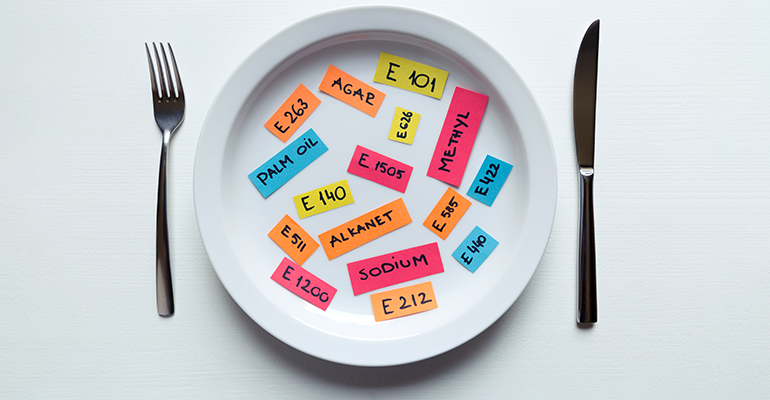
“It’s unlikely the bill will be welcomed by the food industry due to the complexity and costs it adds,” Rebecca Kaya, regulatory specialist at Ashbury, a regulatory consultant for retailers and manufacturers, told Ingredients Network.
The seven additives the proposed law would ban have been associated with hyperactivity including behavioural difficulties and decreased attention in children, Kaya says. In addition, the law also aims to eliminate colours banned in the European Union (EU) because of concern around genotoxicity, which refers to DNA damage that can cause cancer and impact immunity.
“The bill does not define ‘toxic’ but lists the specific synthetic colours that would be banned based on pre-existing scientific assessment and a state research assessment,” says Kaya.
However, the additives have already undergone safety assessments completed by the Food and Drug Administration (FDA) and are allowed in food nationally in the US. Due to these safety assessments and its existing presence, Kaya says: “This would make it hard to comply with a California-specific law.”
As the bill is also targeted at foods sold in schools, Kaya adds: “This could cause other distribution difficulties for products sold across multiple channels.”
 © AdobeStock/LIGHTFIELD STUDIOS
© AdobeStock/LIGHTFIELD STUDIOS
Anticipated changes to school meals
If the new bill comes into force, it will only impact foods sold within school food service, as opposed to the broader manufacturing sector and brands selling their products in California and the US. “So the impact is probably minimal,” Kaya says.
The legislation would, however, require products containing these colours to be reformulated, relabelled or removed from distribution in the US by 2027. Reformulated products would still have to comply with other school nutrition requirements.
If products remain unchanged, they could still be sold at activities 30 minutes before and 30 minutes after the school bell but not during the school day. “If a brand chose to manufacture two versions of a product, one with and one without the additives, complying would require close management of the supply chain,” Kaya adds.
Food colour regulation in the EU and Great Britain
The proposed US ban on food additives only used in food and drinks served in schools is different from how the EU and Great Britain (GB) controls these food additives. All food additives in EU and GB are permitted in categories of food types. As a result, manufacturers or brands cannot use one food additive in any food. Instead, they must first look at the category of food in which it is permitted.
“One of the additives the US is banning is not permitted at all in either the EU or in Great Britain (England, Scotland and Wales), while others have been deemed to affect children’s activity levels and attention,” Kaya says. These are known as The ‘Southampton Six’ colours: Tartrazine (E102), Quinoline Yellow (E104), Sunset Yellow (E110), Carmoisine (E122), Ponceau 4R (E124) and Allura Red (E129).
Banning additives
“The fact they have only banned the colours in food in schools seems senseless to me,” says Kaya. “Either the colours are not a good idea in foods targeted at children/foods they regularly consume, and they should be regulated similarly to those in the UK or EU, or they are fine,” Kaya adds.
Related news
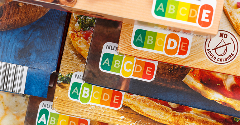
Portugal officially adopts NutriScore
10 Apr 2024
Portugal has adopted the NutriScore as its official – but voluntary – front-of-pack nutrition label to promote healthy eating, with researchers calling this “a great victory for science and public health”.
Read more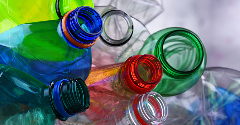
R3PACK Consortium backs BPA ban
9 Apr 2024
The EU-funded research project, R3PACK, urges a ban on Bisphenol A (BPA) and calls for rigorous rules, promoting transparency and prioritising health and the environment.
Read more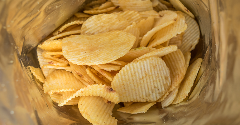
Ultra-processed food intake in South Africa at concerning levels, study suggests
19 Mar 2024
As South Africa considers introducing front-of-pack warning labels and strict marketing limits for unhealthy foods, research has found that low-income South Africans get around half of their calories from ultra-processed foods (UPFs) – “a cause for con...
Read more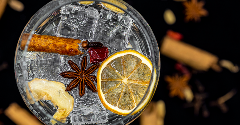
As Gen Z shies away from alcoholic drinks exotic flavours are the big draw
11 Mar 2024
With Gen Z drinkers proving to be the driving force behind the sober curious movement, we spoke to Bax Botanics, an artisanal distiller of zero-alcohol botanical beverages, to find out what appeals to its younger drinkers.
Read more
Young consumers' demand for functional ingredients is driving change in the beverage industry
11 Mar 2024
Younger consumers are blurring the boundaries between food and beverage – demanding a wide variety of functional ingredients, but in a drinkable format that compliments their on-the-go lifestyles.
Read more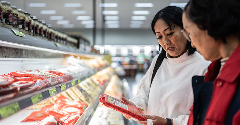
Brazilian manufacturers must comply with warning label regulation, says court
7 Mar 2024
The Federal Court of São Paulo has ruled that Brazilian manufacturers must comply with front-of-pack labelling regulation that requires unhealthy products to feature warning labels, scrapping a last-minute one-year extension.
Read more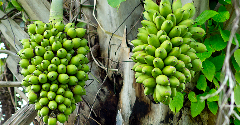
Macauba oil emerges as potential rainforest-friendly palm oil alternative
1 Mar 2024
Producers and researchers consider the rainforest-friendly credentials of Macauba palm oil and whether its sustainability credentials offer an opportunity to replace palm oil.
Read more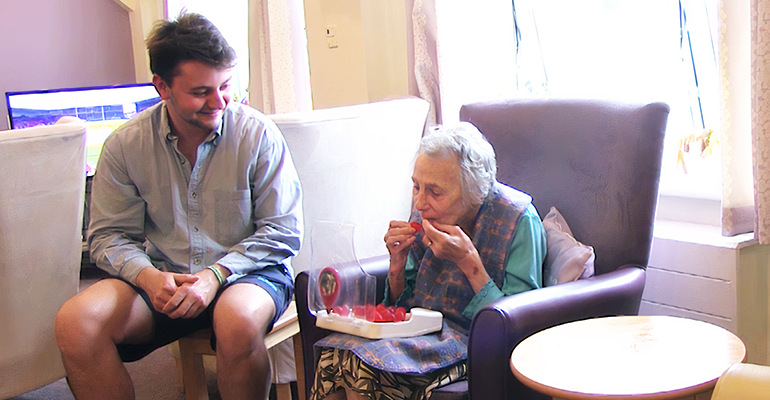
Jelly Drops made of 95% water tackle dehydration among seniors
27 Feb 2024
Specialised nutrition startup Jelly Drops makes small jelly drops that contain 95% water and added electrolytes and vitamins to combat dehydration among elderly people and those with dementia who often forget to drink– a common yet previously underserv...
Read more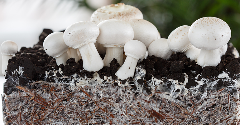
Mycelium to move beyond plant-based applications
12 Feb 2024
As mycelium development kicks off in 2024 with new multi-million investment, product development, and retail expansion, manufacturers lean into launches.
Read more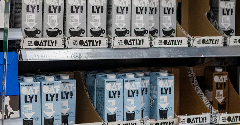
UK High Court allows Oatly to use 'milk' on packaging
17 Jan 2024
Oatly has scored a landmark victory in the use of the word milk after the UK High Court ruled against the country’s dairy industry and permitted the term to be used on packaging.
Read more